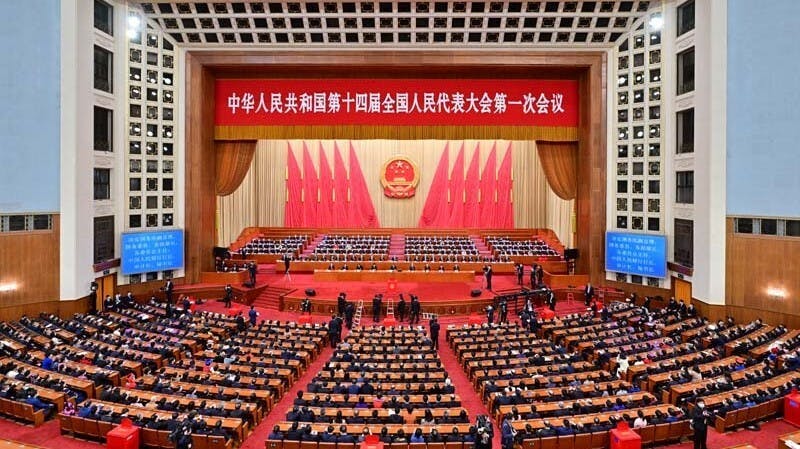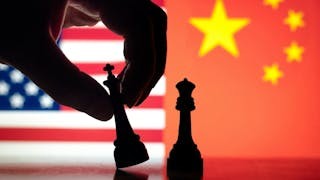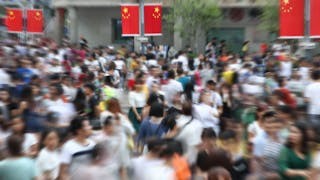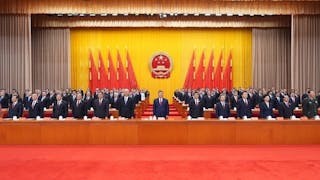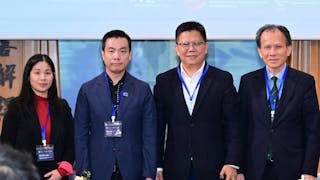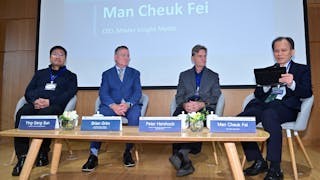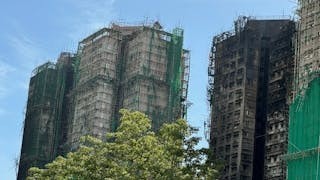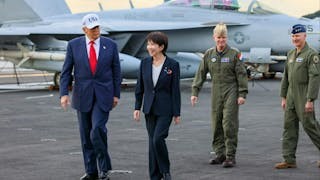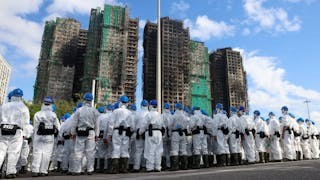全國人大會議今日閉幕。人大、政協「兩會」對港澳台地區的發展具有重要意義。
在領導班子的新老交替方面,最大的亮點是習近平獲得與會代表的全部2977票,不僅連任國家主席,還續任中央軍委主席。這樣一致的投票結果,意味着習近平主席的合法性、權威性和聲望空前高漲。
習近平權威空前高漲
其次是韓正當選國家副主席,趙樂際當選全國人大常委會委員長。韓正曾在江澤民、胡錦濤政府任職,到習近平主政時,韓正對港澳工作貢獻尤大;趙樂際曾擔任中紀委書記,為中國的反腐倡廉建設作出了巨大貢獻。 因此,韓趙二人分別當選國家副主席和全國人大委員長是實至名歸,顯示出很高的和聲望和認受性。
第三,當選政協主席的另一位重要官員是王滬寧,他是江澤民、胡錦濤、習近平領導下的政壇頗具影響力的政治理論家。最重要的是,王滬寧是中央政府對台灣政策的設計者。在北京強調運用一國兩制台灣方案處理台灣政治前途的情況下,王滬寧出任政協主席,對制定和落實贏得更多台灣人心的政策具有重要意義。只要認同「九二共識」的台灣人,就可以爭取他們進行對話。在王滬寧領導和思考下,一國兩制的台灣方案將如何繼續探索和發展,仍有待觀察。
第四是選舉全國人大副委員長14人; 儘管李鴻忠以1票反對、1票棄權的票數當選,但這一現象表明,在實行民主集中制的過程中,在極少數異議人士身上,可以看到一定程度的民主。
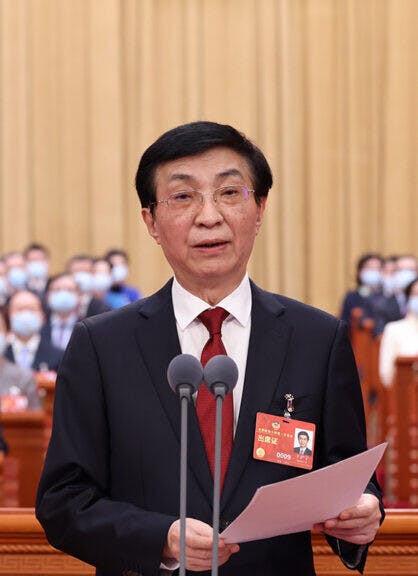
李慧琼當選港區人大常委
第五,在一眾全國政協副主席中,香港的梁振英和澳門的何厚鏵再次當選。政協前副主席董建華不在候選人名單中,香港前行政長官林鄭月娥也不在候選人名單中。這意味着兩位香港和澳門的前任行政長官連任政協副主席,並不完全是憲法實踐──這取決於幾個主要因素,包括前行政長官的政治影響力、過往政績和貢獻、個人喜好及健康狀況等。
第六,譚耀宗退任全國人大常委,香港較年輕的全國人大代表,即民建聯的李慧琼當選。作為新一屆全國人大常委。她過往在民建聯、立法會和行政會議的工作表現,無疑是中央的考慮因素。
她當選新一屆全國人大常委後,香港有聲音指出她要在新一屆區議會選舉中放棄尋求連任,可見部分民建聯議員似乎盯上了區議會層面的政治地位。如果區議會選舉可能會經過一改些改革之後在明年舉行,最有可能的是重新加入委任議席和分區委員會、地區撲滅罪行委員會及地區防火委員會的委任成員。那麼,李慧琼就沒有必要再次參加即將到來的區議會選舉,這似乎也說得過去。
夏寶龍強調 參政議政重要性
一大批中央官員對香港、澳門和台灣作了重要講話,包括港澳事務辦公室主任夏寶龍、國務院新聞辦公室副主任兼新聞發言人郭衛民、即將卸任的全國人大常委會委員長栗戰書、 即將卸任的國務院總理李克強、即將卸任的全國政協主席汪洋和即將上任的全國政協主席王滬寧。
3月3日,夏寶龍表示,港澳政協委員要發揮維護兩地長期繁榮穩定和推動一國兩制實踐行穩致遠的「雙重積極作用」,實現中華民族偉大復興作出新的更大貢獻。他希望,港澳政協委員認真履職盡責,積極參政議政。
顯然,夏寶龍的發言強調了港澳政協委員參政議政的重要性,他們議政的水平必須提高,並為兩地一國兩制的發展作出貢獻。
同日,郭衛民還表示,全國政協堅決反對台獨分裂和外來干涉。政協委員要秉持「兩岸一家親」的理念,致力促進兩岸互動交流,加強與台灣民眾的交流合作。 也就是說,中國大陸要在後疫情時代推動與台灣的人文交流,推動兩岸和平發展,促進融合發展,團結台灣同胞,推進國家統一進程,實現中華民族偉大復興。
郭衛民的講話明顯是針對台灣的,表明從現在到2024年1月台灣總統大選,北京將加強對台灣民眾的統戰工作,促進與台灣的人文、經濟和文化融合。
3月7日,栗戰書表示,《香港國安法》為推動香港進入「由亂到治」走向「由治及興」的新階段、保持港澳長期繁榮穩定提供了有力法治保障。 栗戰書講話總結了《香港國安法》對香港社會穩定的重要貢獻,現在期望在改善民生、保持繁榮方面發揮更大作用。
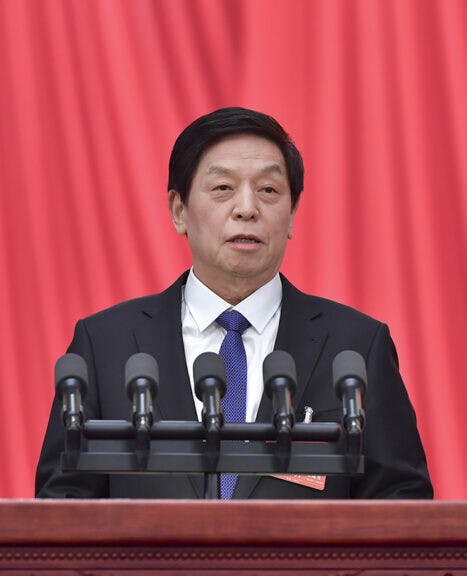
王滬寧籲扮好「外交官」角色
李克強發表的《政府工作報告》中,提及港澳的篇幅較短,他表示要全面準確、堅定不移貫徹一國兩制、港人治港、澳人治澳、高度自治的方針, 落實「愛國者治港」、「愛國者治澳」原則,推動香港由亂到治,走向由治及興。李克強關於香港、澳門要發展經濟、改善民生、保持長期繁榮穩定的表態,體現了這位國務院前總理的務實精神。事實上,中央政府在處理港澳發展問題方面一直非常務實。
汪洋的報告涉港澳部分,圍繞提升愛國愛港愛澳力量能力建設、推進粵港澳大灣區建設等務實建言,支持全國人大完善香港特別行政區選舉制度等。此外,汪洋表示,港澳政協委員應積極參與兩岸論壇,加強與台灣島內有關黨派團體、人士聯繫。最後,他勉勵港澳政協委員就共建和參與「一帶一路」與海外僑胞進行協商。 顯然,汪洋的講話是針對港澳如何融入大灣區,以及政協委員如何發揮統一戰線角色與海外僑胞和台灣同胞的溝通。
最後,王滬寧在3月8日王滬寧對港澳政協委員提出「四點希望」:希望委員們落實好一國兩制和「愛國者治港」原則,掌握好憲法、《基本法》;積極參與粵港澳大灣區建設,融入國家發展大局;支持特區政府做好民生工作,排解民生憂難;向國內外講好中國故事、香港故事和一國兩制故事。王滬寧的這番話不僅呼應汪洋,還要求港澳政協委員扮演「外交官」的角色,不僅在港澳對內,也在海外各國和華僑華人之間宣傳一國兩制。
換屆反映民主集中制特點
綜合而言,全國人大和政協「兩會」對港澳台發展具有重要意義。中央領導層換屆工作已經完成,具有高度合法性和廣泛的認受性,同時具有中國民主集中制的特點,中央強調《香港國安法》對保持香港繁榮穩定的重要性。港澳政協委員如何在海外宣傳一國兩制方面多做一些工作,如何通過加強與台灣民眾的交流互動,為大陸對台工作貢獻力量 ,以及港澳地區着力改善經濟和民生的需要。
2023年3月舉行的全國人大和政協「兩會」,務實掛帥顯然是中央對港澳政策的標誌。由現在到2024年1月台灣總統選舉,北京的政策是加強與台灣的人文、經濟和文化交流──在兩岸關係停滯不前的後新冠時代,是自然、必要和健康的交流。
Highlights of Two Sessions: Implications for Hong Kong, Macau and Taiwan
The two sessions of the National People’s Congress (NPC) and Chinese People’s Political Consultative Conference (CPPCC) have important implications for the development of Hong Kong, Macau and Taiwan.
In terms of leadership renewal and change, the most significant highlight was that President Xi Jinping acquired the full 2,977 votes from the delegates to continue to be not only the President but also the Chairman of the Central Military Commission. Such voting results mean that the legitimacy, mandate and popularity of President Xi Jinping are unprecedentedly and unanimously high.
Secondly, Han Zheng was elected as the Vice President while Zhao Leji was elected as the Chairperson of the NPC. Han Zheng in the past served in the Jiang Zemin and Hu Jintao administration and his contribution to the work on Hong Kong and Macau during the President Xi Jinping era has been tremendous. Zhao Leji was secretary of the Central Discipline Inspection Committee, contributing immensely to China’s anticorruption drive and campaign. As such, the two’s elections as the Vice President and the NPC Chair were understandable and showed their high degree of legitimacy and popularity.
Third, another important elite elected as the Chairman of the CPPCC is Wang Huning, who is an influential political theorist serving the administration under the leadership of Jiang Zemin, Hu Jintao and Xi Jinping. Most significantly, Wang is the architect of the central government’s policy toward Taiwan. As Beijing is now emphasizing the usage of the Taiwan model of “one country, two systems” to deal with Taiwan’s political future, Wang’s new position as the CPPCC chairperson has the immediate significance of formulating and implementing the policy of winning the hearts and minds of more Taiwan people, wooing them to have dialogue so long as they support the 1992 consensus. It remains to be seen how the Taiwan model of “one country, two systems” will continue to be “explored” and developed under the leadership and thought of Wang Huning.
Fourth, fourteen persons were elected as the deputy chairs of the NPC; nevertheless, Li Hongzhong got one vote against him and one vote of abstention – a phenomenon showing that, amid the practice of democratic centralism, some degree of democratic element could be seen in a tiny minority of dissent.
Fifth, among the CPPCC vice chairpersons, C. Y. Leung from Hong Kong and Edmund Ho Hau-wah from Macau were reelected. Former vice chair Tung Chee-hwa was not on the list of candidates, while former Hong Kong Chief Executive Carrie Lam was also not on the list of candidates. This meant that it is not really a constitutional practice for the former chief executives of Hong Kong and Macau to be selected and elected as the vice chairs of the CPPCC – a situation contingent on several main factors, including the political weight, previous track record and contribution, personal preference and the health condition of the former chief executives concerned.
Sixth, with the stepping down of Tam Yiu-chung from the NPC Standing Committee, a younger Hong Kong NPC member, namely Starry Lee Wai-king of the loyalist Democratic Alliance for the Betterment and Progress of Hong Kong (DAB), has been elected as the new member of the NPC Standing Committee. Her previous work in the DAB, Legislative Council and Executive Council was undoubtedly the consideration made by the central authorities.
Once she was elected as a new member of the NPC Standing Committee, some voices in Hong Kong pointed to her need to abandon her re-election bid in the next District Council elections – a point showing that some DAB members appeared to eye for district-level political position. It seems logical that Starry Lee would have no need to run again in the upcoming District Council election, if it will perhaps be held next year after a kind of reform most likely in the form of reinjecting appointed seats and some appointed members from Mutual Aid Committees, Fight Crime Committees and Fire Prevention Committees at the district level.
The most significant remarks on Hong Kong, Macau and Taiwan were made by a whole array of central authorities, including Hong Kong Macau Affairs Office director Xia Baolong, vice minister of State Council and information spokesman Guo Weimin, outgoing NPC Standing Committee chair Lu Zhanshu, outgoing Premier Li Keqiang, outgoing CPPCC chair Wang Yang, and the incoming CPPCC chair Wang Huning.
On March 3, Xia Baolong said Hong Kong and Macau CPPCC members should develop their “double positive functions” of maintaining the long-term prosperity and stability of the two places and promoting the implementation of “one country, two systems” to realize the contributions to the Chinese renaissance. He also remarked that the CPPCC members from Hong Kong and Macau should elevate their quality of political deliberation and discussions.
Obviously, Xia’s comments emphasized the importance of CPPCC members from Hong Kong and Macau to engage in political discourse, whose standards have to be elevated, and to contribute to the development of “one country, two systems” in both places.
On the same day, Guo Weimin added that mainland China resolutely opposes “Taiwan independence” and external intervention. Moreover, the members of the CPPCC should adopt an attitude of treating two straits as “one family,” fostering the interactions and exchange between the two straits, enhancing the communication with the Taiwan people. In other words, mainland China is going to promote human interactions with Taiwan in the post-Covid era, propelling the development of peaceful development of the two straits, promoting integration and development, uniting the Taiwan comrades, and pushing forward the process of national reunification as well as achieving the objective of Chinese renaissance.
Guo’s comments were clearly directed at Taiwan, showing that Beijing is going to enhance its united front work on the people of Taiwan and promote human and economic as well as cultural integration with Taiwan from now leading to the Taiwan presidential election in January 2024.
On March 7, Lu Zhanshu said that the national security law was pivotal in maintaining stability of Hong Kong and that it also provides the necessary legal safeguard for Hong Kong to undergo the transition from chaos to governance, and from governance to prosperity. Lu’s comments were a summary of the important contribution of the national security law to the social stability of Hong Kong, which is now expected to do more in improving the people’s livelihood for the sake of maintaining prosperity.
Li Keqiang’s comments on Hong Kong and Macau were brief, saying that the principles of “one country, two systems,” “Hong Kong people ruling Hong Kong,” “Macau people ruling Macau,” and “a high degree of autonomy” have to be accurately implemented, together with the tenets of governing Hong Kong and Macau in accordance with the law and of realizing the patriots to rule the two special administrative regions. His comments on the need for Hong Kong and Macau to develop the economy, improve the people’s livelihood, and to maintain long-term prosperity and stability demonstrated the former Premier’s pragmatism. In fact, the central government has remained very pragmatic in dealing with the development of Hong Kong and Macau.
Wang Yang’s comments on Hong Kong and Macau focus on the consolidation of the patriotic forces in governing Hong Kong and Macau, the promotion of the two places’ integration with and construction of the Greater Bay Area, and support of the central government’s revamp of the electoral system of Hong Kong. Moreover, Wang said that the Hong Kong and Macau members of the CPPCC should actively participate in the forums of the two straits and enhance their interaction and communication with the people of Taiwan, including those with party affiliations. Finally, he encouraged the Hong Kong and Macau members of the CPPCC to coordinate and communicate with the overseas Chinese on the construction of and participation in the Belt and Road Initiative. Clearly, Wang’s comments were directed at how Hong Kong and Macau should contribute to their integration with the Greater Bay Area and how CPPCC members should play the role of united front actors in communicating with overseas Chinese and Taiwanese.
Finally, Wang Huning on March 8 told the Hong Kong and Macau CPPCC members to take the leadership in their thinking, telling the people inside and outside China about the good story of the “one country, two systems.” Furthermore, they should also actively implement the “one country, two systems,” promote national security, collectively develop the economy, promote the Greater Bay Area construction, and look for developmental momentum and solve the problems of the people’s livelihood. Wang’s remarks not only echoed Wang Yang, but also asked the Hong Kong and Macau members of the CPPCC to act as “diplomats” publicizing the “one country, two systems” not just internally in Hong Kong and Macau but also in overseas countries and among the overseas Chinese diaspora.
In conclusion, the two NPC and CPPCC sessions have important implications for the development of Hong Kong, Macau and Taiwan. While leadership consolidation and renewal in the central government have been completed with a high degree of legitimacy, popularity and mandate with the feature of Chinese democratic centralism at work, central authorities have emphasized how the national security law has been contributing to the stability of Hong Kong, how the Hong Kong and Macau members of the CPPCC should do more in terms of publicizing the “one country, two systems” to the overseas community, how they should contribute to the mainland’s work on Taiwan through enhanced communication and interaction with the Taiwan people, and the need for Hong Kong and Macau to focus on the improvement of the economy and the people’s livelihood.
Pragmatism in command is clearly the hallmark of the central government’s policy toward both Hong Kong and Macau during the two NPC and CPPCC sessions in March 2023. In the current transition to the occurrence of the Taiwan presidential election in January 2024, Beijing’s policy is to enhance human and economic and cultural interactions with Taiwan – a kind of communicative outreach that is natural, necessary and healthy in the post-Covid era during which the relations between the two straits were stalled.
原刊於澳門新聞通訊社(MNA)網站,本社獲作者授權轉載。網址:https://www.macaubusiness.com/opinion-highlights-of-two-sessions-implications-for-hong-kong-macau-and-taiwan/



